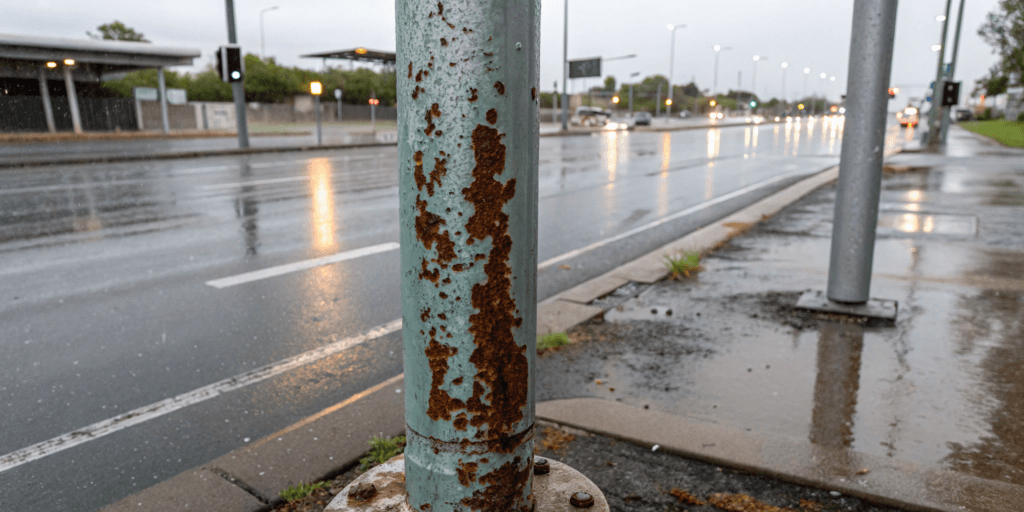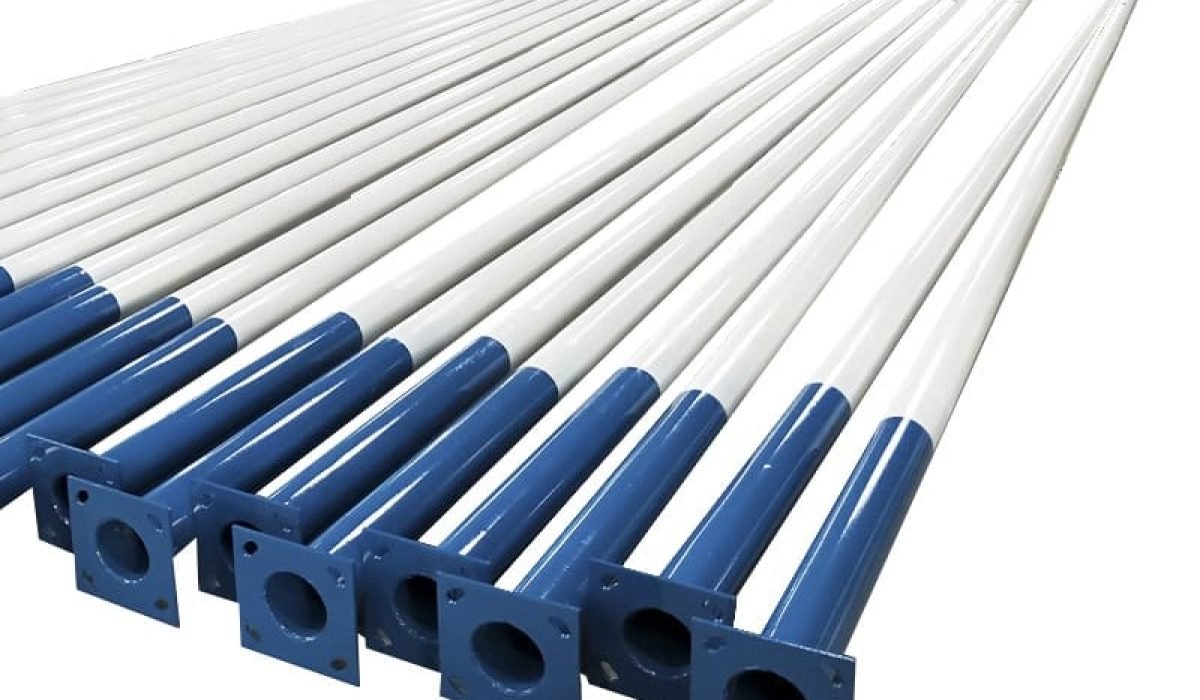Ever walked past a row of aluminum light poles that look like they've been abandoned for years? Faded, scratched, and sometimes even peeling off like an old sticker. It’s embarrassing, especially if you supplied them.
Properly painting aluminum light poles isn’t just about looking good — it keeps the structure sound and saves a ton of headaches (and cash) down the line.
I’ve seen too many cases where contractors cut corners and then have to repaint within two years. Not fun, and definitely not cheap. Let’s break down what really works from someone who’s seen it happen on the ground.
Why Even Bother Painting Aluminum Light Poles?

Some people assume aluminum doesn't need paint at all since it “doesn’t rust.” True, it doesn’t rust like steel, but it oxidizes and forms that chalky gray layer. And if you’re in a coastal or humid area? Forget it — you’ll get corrosion spots and that ugly patchy look fast.
Painting these poles protects them from oxidation, helps them handle UV and rain abuse, and honestly, they just look way better standing there all clean and glossy.
I remember seeing a batch of poles we did for a city project in Ghana — after three rainy seasons, they still looked brand new. Meanwhile, a competitor's cheaper batch nearby looked like it had been through a sandstorm.
| Issue if unpainted | What you’ll get |
|---|---|
| Oxidation spots | Weak surface, pitting |
| UV fading | Dull, washed-out look |
| Peeling | Extra maintenance costs |
Why Painting Aluminum Poles Is Such a Pain
Aluminum doesn’t exactly "welcome" paint. The natural oxide layer is slick and stubborn, making it tough for anything to stick properly. I’ve watched more than one rookie team skip prep because “the primer will cover it anyway.” Wrong.
That oxide layer acts like a shield against paint, so unless you remove it and roughen up the surface, you’re basically spraying on a temporary sticker.
Add in crazy African weather — strong UV, heavy rain, dust storms — and you’ve got a recipe for disaster if you take shortcuts.
So How Do You Actually Paint Aluminum Poles Without Regrets?
Alright, here’s the real deal from the workshop floor (and yeah, I've learned a few of these the hard way).

Clean, sand, prime, paint, and — if you don’t want to lose sleep — clear coat. Simple on paper, but every step matters.
Step 1: Clean Like You Mean It
Grease, fingerprints, dust — they’re all paint killers. Use a solid industrial degreaser, not just soapy water. We once had a batch returned because someone skipped this and thought "ah, it'll be fine." It wasn't.
Step 2: Sand or Blast
Remove the oxide layer. Medium grit works fine if you’re hands-on; for bulk, sandblasting is quicker. Watch out though — too aggressive blasting can dent thin-walled poles. I’ve seen operators get carried away and leave weird swirl marks that show up under paint.
Step 3: Self-Etching Primer
Non-negotiable. This stuff chemically bonds to aluminum and gives your paint a fighting chance. Follow the drying times — rushing here ruins everything later, and no one likes explaining to the boss why the paint is peeling at the base.
Step 4: Apply Top Coat
We usually go with polyurethane or acrylic. Keep coats thin and even. If you’re feeling lazy and do one thick layer instead of two or three thinner ones, you’ll see sagging or cracking later. Been there, regretted that.
Step 5: Clear Coat (Seriously, Do It)
A good UV-resistant clear coat isn’t just a fancy optional add-on — it really extends life, especially in high UV zones. Plus, clients love that glossy “showroom” finish.
| Layer | Material | Why it matters |
|---|---|---|
| Base | Self-etching primer | Chemical bond to aluminum |
| Middle | Polyurethane/Acrylic | Main color & barrier |
| Top | UV clear coat | Extra protection & gloss |
What Good Painting Actually Gets You
Let’s keep it real: Good painting isn’t just vanity. It’s about reducing callbacks, avoiding frantic maintenance calls at 2am, and making your city or site look professional for longer.
A solid paint job keeps poles looking sharp, slashes maintenance costs, and protects your brand’s name from late-night "why is this flaking?" phone calls.
In Uganda, some municipal buyers have started inspecting poles yearly. If yours fail, they dock payments or delay future orders — a major headache no one wants.
The Classic Mistakes We Still See

You’d think we’d all have this figured out by now, but no. Common slip-ups still pop up every season.
Biggest offenders: skipping primer, using bargain-bin paint, or overloading layers thinking "thicker = stronger."
| What went wrong | What happens |
|---|---|
| No primer | Flakes fast, bad adhesion |
| Thick coats | Drips, cracks, uneven |
| Cheap paint | Fades, chalks quickly |
I once saw a project where the team proudly showed off a "new technique" using local wall paint — yeah, it lasted maybe six months before chunks started falling off. Clients weren’t impressed.
How to Work Faster Without Wrecking Quality
If you're handling a big batch, you don’t want to be hand-painting each pole like a hobby project.
Automated spray systems, climate-controlled booths, and batching poles by size help maintain quality without slowing to a crawl.
- Pro spray guns: Smooth finish, less overspray mess.
- Controlled environment: Keeps dust out and avoids those annoying "fish eyes" in your coat.
- Batch processing: Less downtime, easier tracking of primer and topcoat steps.
At Huaweilight, we’ve managed to push about 150 poles per day on peak runs, and yes, sometimes we still have to re-do one or two when someone gets a little too confident with the spray gun.
| Upgrade | Real benefit |
|---|---|
| Automated spray | Faster, consistent layers |
| Controlled booths | No dust, fewer defects |
| Batching | Smoother workflow |
Conclusion
Painting aluminum poles is one of those jobs that looks deceptively simple on the outside but hides all kinds of traps if you rush. Done right, it protects your investment, saves you endless service calls, and keeps your projects looking sharp for years.
If you ever want help sorting the right process or need a supplier who actually cares about long-term performance (and doesn’t just want to sell you the cheapest can of paint), give us a shout at Huaweilight. We’ve made enough mistakes so you don’t have to.


